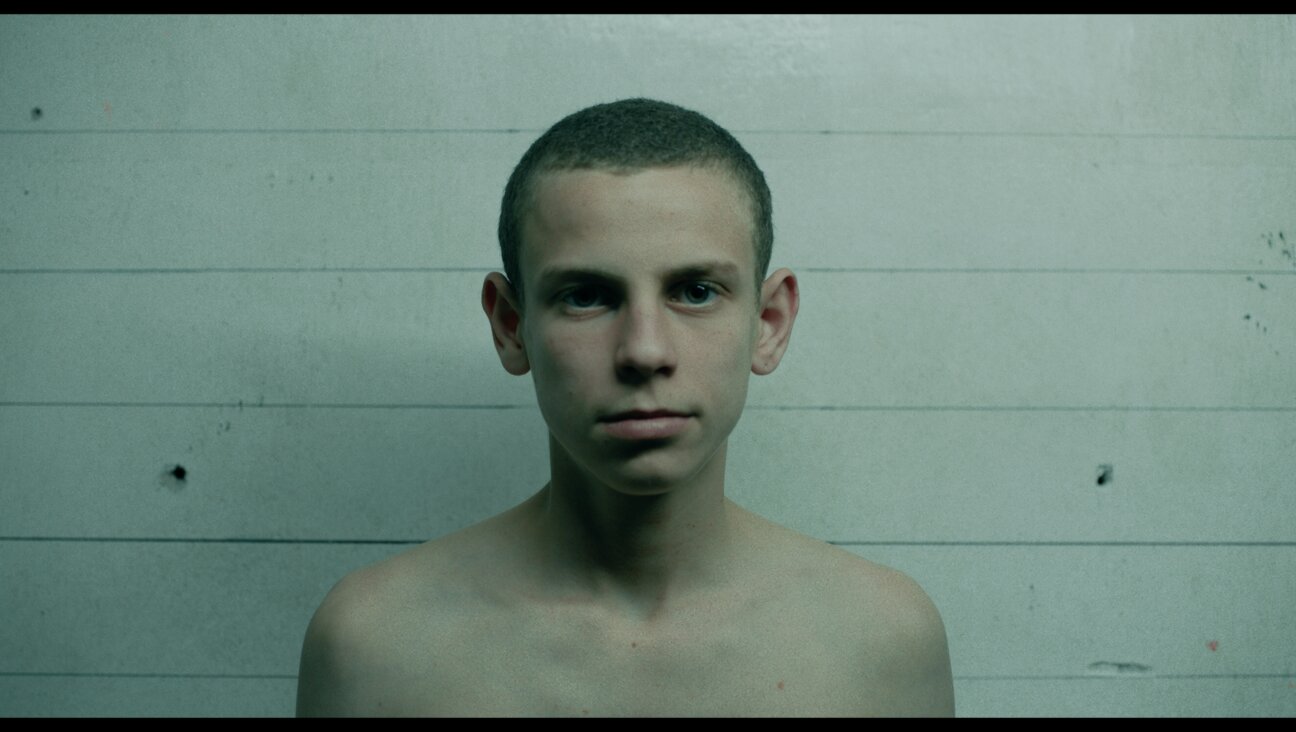In ‘The Other Story,’ a tale of forgiveness as faith and family collide

Joy Rieger and Maya Dagan in ‘The Other Story.’ Image by Iris Nesher
_Author’s note: ‘The Other Story’ is playing September 28 as part of the Marlene Meyerson JCC’s online “Forgive Me Film-a-thon.” Marking the occasion, we’ve republished our review from July 1, 2019._
When children leave the insular world of Haredi Judaism, many parents sit shiva for them. Some choose to not even speak the child’s name once they’ve left the fold. When children exit the secular sphere of their parents, the shock to the system is often no less pronounced and may be more punctuated with denial – even among those who fancy themselves progressive.
Israeli director Avi Nesher’s 2018 film, “The Other Story,” playing as part of the Marlene Meyerson JCC’s “Forgive Me Film-a-thon” on September 28, presents case studies of two women on opposite sides of Orthodoxy. The first, Anat (Joy Rieger), is the child of a secular parents; she found God with her musician fiancé, Shachar (Nathan Goshen), after living a wild life of sex and drugs. The second woman, Sari (Avigail Harari), was raised Orthodox and is now dabbling in a pagan cult to the goddess Asheroth, bucking the patriarchy of her early life to celebrate female empowerment.
The two are brought together by Anat’s absentee father, Yonatan (Yuval Segal), a psychologist who is providing marriage counselling for Sari and her husband, Rami (Mayaan Blum). At issue is the the welfare of the couple’s young child, who is reported to be involved in furtive nighttime rituals attended by Sari. Yonatan involves Anat in the case in the hopes of regaining influence over her and convincing her to leave Shachar and her faith.
There’s a lot packed in here, in case you couldn’t tell – and I haven’t even touched the subplot of the looming fraud case that Yonatan faces back in America or Shachar’s continued opioid abuse. Somehow, though, Nesher and his co-writer, Noam Shpancer, make it work. Because the film is so dense with plot machinations, every detail – including a literal Chekhov’s gun – has a payoff. The thematic thrust of how parents and children harm one another and the lasting effects of inculcation unify the proceedings, which are anchored by sharp character development and incredible performances.
As Anat, Rieger exudes a righteous bullheadedness tempered by a newfound devotion and makes these qualities seem of a piece. Maya Dagan as Anat’s outspoken mother, Tali, and Goshen’s Yonatan are painfully believable in their squabbles as resentful exes brought together over concern for their only child. As Yonatan’s father, fellow psychologist Shlomo, the 71-year-old Sasson Gabai, of “The Band’s Visit” fame, capably delivers the film’s thesis while in a hospital recovering from a stumble: “When a child is born, two children are actually born: the one you hoped for and the real one.”
That idea is echoed in a handful of jarring sequences in which Yonatan imagines situations escalating to extremes out of his recent fatherly concern. At one point when he and Anat cross into East Jerusalem, he imagines a group of Palestinians pulling semi-automatics from behind their backs as Anat approaches them. In another instance, he conjures a vision of Anat hurling herself off the roof of her midrasha. Ultimately, both he and Anat learn to not assume the worst. But in the case of Anat, who learns to be less rigid with the truth when love and family are involved, the takeaway feels unearned. (The circumstances surrounding this epiphany, related as they are to her father and grandfather’s work, are also almost certainly professionally unethical as well).
The film ends with looming ambiguities, but hope prevails as the tensions of family and faith are accepted as complex, though not beyond repair. The premise shows that transition from one extreme way of life to another is not blithely made and that making a clean break from a painful past is impossible – and even dangerous.
The title of “The Other Story” is derived from a song written by Shachar, who spends the movie playing his music to secular crowds in an attempt to connect his sinful past with his faithful present. These narratives can not be so clearly delineated. We may not be able to forget where we came from, but we can forgive ourselves and those around us for the pain of our own backstories.
PJ Grisar is the Forward’s culture fellow. He can be reached at [email protected].
The Forward is free to read, but it isn’t free to produce

I hope you appreciated this article. Before you go, I’d like to ask you to please support the Forward.
Now more than ever, American Jews need independent news they can trust, with reporting driven by truth, not ideology. We serve you, not any ideological agenda.
At a time when other newsrooms are closing or cutting back, the Forward has removed its paywall and invested additional resources to report on the ground from Israel and around the U.S. on the impact of the war, rising antisemitism and polarized discourse.
This is a great time to support independent Jewish journalism you rely on. Make a gift today!
— Rachel Fishman Feddersen, Publisher and CEO
Support our mission to tell the Jewish story fully and fairly.
Most Popular
- 1

Fast Forward Ye debuts ‘Heil Hitler’ music video that includes a sample of a Hitler speech
- 2

Opinion It looks like Israel totally underestimated Trump
- 3

Culture Cardinals are Catholic, not Jewish — so why do they all wear yarmulkes?
- 4

Fast Forward Student suspended for ‘F— the Jews’ video defends himself on antisemitic podcast
In Case You Missed It
-

Fast Forward Federal security grants to synagogues are resuming after two-month Trump freeze
-

Fast Forward NY state budget weakens yeshiva oversight in blow to secular education advocates
-

Fast Forward Margot Friedlander, German Holocaust survivor who landed a Vogue cover, dies at 103
-

Culture Is this heaven or is it New Jersey? 9 innings of the Jewish-American pastime
-
Shop the Forward Store
100% of profits support our journalism
Republish This Story
Please read before republishing
We’re happy to make this story available to republish for free, unless it originated with JTA, Haaretz or another publication (as indicated on the article) and as long as you follow our guidelines.
You must comply with the following:
- Credit the Forward
- Retain our pixel
- Preserve our canonical link in Google search
- Add a noindex tag in Google search
See our full guidelines for more information, and this guide for detail about canonical URLs.
To republish, copy the HTML by clicking on the yellow button to the right; it includes our tracking pixel, all paragraph styles and hyperlinks, the author byline and credit to the Forward. It does not include images; to avoid copyright violations, you must add them manually, following our guidelines. Please email us at [email protected], subject line “republish,” with any questions or to let us know what stories you’re picking up.
















